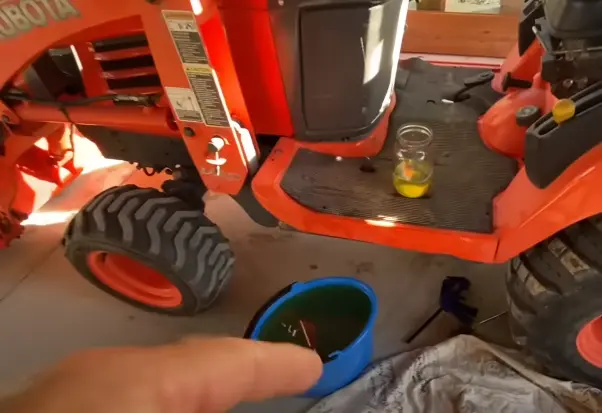Tractors and lawnmowers are essential machines used by farmers, landscapers, and homeowners alike. These powerful tools help us maintain and manage our outdoor spaces efficiently. However, an often-overlooked hazard is the use of contaminated fuel in these machines. Contaminated fuel can have detrimental effects on the performance, longevity, and safety of tractors and lawnmowers.
Possible Hazards for Your Equipment from Contaminated Fuel
Fuel contamination occurs when foreign substances like water, dirt, rust, or even microbial growth find their way into the fuel supply. This can happen during storage, transportation, or from improper handling. Using contaminated fuel in machinery can lead to severe consequences, both in terms of the machine’s functionality and the operator’s safety.
The presence of water or moisture in fuel can cause corrosion and rusting in the metal components of tractors and lawnmowers. This can lead to clogged fuel lines and filters, injector blockages, and increased wear, ultimately affecting the overall performance and efficiency of the machines. Persistent use of contaminated fuel can result in costly repairs, decreased engine life, and reduced fuel economy.
Additionally, dirt and debris in the fuel can cause blockages in fuel filters, fuel injectors, and carburetors. This can disrupt the fuel flow, leading to engine misfires, power loss, and difficulty starting the machinery. Such issues not only hamper productivity but also lead to frustration and downtime for operators who rely on their tractors and lawnmowers for their daily tasks.

Moreover, microbial growth in fuel, commonly known as “diesel bug,” is a growing concern. These microorganisms thrive in the presence of water and can multiply rapidly, creating slimy colonies that clog fuel filters and fuel lines. The by-products produced by microbial activity can also cause fuel degradation and impact engine performance. If left unchecked, this can lead to severe damage to the fuel system and expensive repairs.
What to Do
It is crucial for tractor and lawnmower owners to prioritize fuel quality to avoid these hazards. Here are some preventive measures that can help mitigate the risks associated with contaminated fuel:
- Use reputable fuel suppliers: Purchase fuel from trustworthy sources known for their quality control measures.
- Store fuel properly: Ensure fuel storage containers are clean, tightly sealed, and protected from moisture and contaminants.
- Regularly check fuel filters: Inspect and replace fuel filters as recommended by the manufacturer to prevent blockages.
- Drain fuel tanks before storage: If the machinery won’t be used for an extended period, drain the fuel tanks completely to eliminate the risk of fuel degradation and contamination.
- Consider using fuel additives: Fuel additives can help prevent water accumulation, enhance fuel stability, and combat microbial growth.
By following these precautions, tractor and lawnmower owners can minimize the risk of fuel-related issues, safeguard the performance and longevity of their equipment, and ensure the safety of operators.
Conclusion
Contaminated fuel poses a severe hazard to tractors and lawnmowers. It can result in engine damage, decreased fuel economy, and reduced productivity. To safeguard against these risks, owners must prioritize fuel quality, adhere to preventive measures, and take necessary steps to ensure clean and uncontaminated fuel is used in their machines. Remember, the well-being of both the equipment and the operators depends on it.






